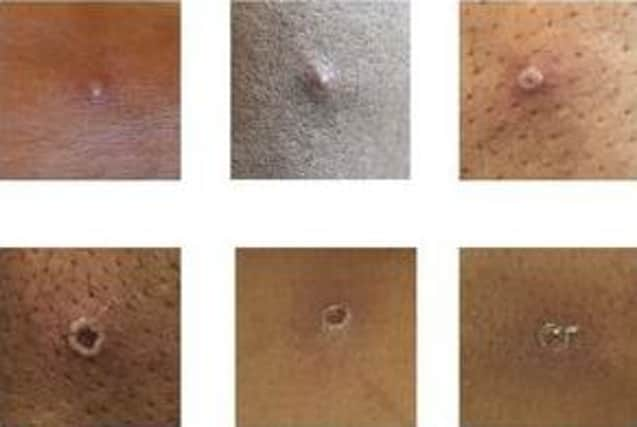NHS officials confirm there are no cases of monkeypox in the Humber area following claim


A spokesperson for the UK Health Secruity Agency (UKHSA) said no cases of the virus had been confirmed in the region despite an East Riding Council public health official’s claims.
An NHS Hull University Teaching Hospitals spokesperson said they did not have any patients with the virus that they were treating currently.
Advertisement
Hide AdAdvertisement
Hide AdIt comes as an East Riding Council public health spokesperson said there were confirmed cases in the area following comments from one of its officials.
The council spokesperson said: “Following further investigation regarding monkeypox, as of today, we are not aware of any confirmed cases in the area.
“However, we would encourage people to be aware of the symptoms to look out for and to visit the UKHSA website for more information.”
But Zoe Stevens, the council’s public health nurse, had told BBC Radio Humberside that cases had been found in the Humber area.
Advertisement
Hide AdAdvertisement
Hide AdThe nurse said the virus’ incubation period of between five and 21 days was most concerning, adding it would likely spread further afield.
Ms Stevens said: “Unfortunately with any of the viruses, people move around the country; we’re all jumping in our cars, jumping on trains so these viruses do get to every area eventually, which is just the nature of them.”
The latest UKHSA figures put the number of confirmed monkeypox cases in the UK at 78 as of Tuesday (May 24).
Seven more cases were confirmed in England and one was found in Scotland, with none yet discovered in Wales or Northern Ireland.
Advertisement
Hide AdAdvertisement
Hide AdUKHSA stated the risk to the population remained low but anyone with unusual rashes or lesions on their body should contact NHS 111 or local sexual health services immediately.
The public health agency also warned there appeared to be a higher risk to gay and bisexual people or men who have had sex with men, with the reasons unclear.
The agency has called on those groups in particular to be aware of the symptoms, particularly if they have recently had a new sexual partner.
UKHSA has contacted anyone thought to be at high risk of catching the virus, including close contacts of those who have had it.
They have been advised to isolate for up to 21 days.
Advertisement
Hide AdAdvertisement
Hide AdUKHSA has purchased supplies of smallpox vaccines which have been offered to close contacts but there is currently no specific jab available for monkeypox itself.
Dr Susan Hopkins, Chief Medical Adviser at UKHSA, said: “We are continuing to promptly detect new monkeypox cases through our extensive surveillance network and NHS services.
“If anyone suspects they might have rashes or lesions on any part of their body, particularly if they have recently had a new sexual partner, they should limit their contact with others and contact NHS 111 or their local sexual health service as soon as possible – though please phone ahead before attending in person.”
UKHSA stated the cases found since Saturday, May 7 was unusual because it was the first time transmissions in the UK are not thought to be linked to those in the virus’ West African origin area
Advertisement
Hide AdAdvertisement
Hide AdThe virus is typically mild, with those infected usually recovering within a few weeks and does not spread between people easily.
The first symptoms include chills, fatigue, muscle and back aches, swollen lymph nodes, fever and headaches.
Rashes are then known to start on the face and spread to other parts of the body, scabbing before falling off.
People tend to catch the virus after it coming into close contact with someone infected with it or a contaminated surface or object.